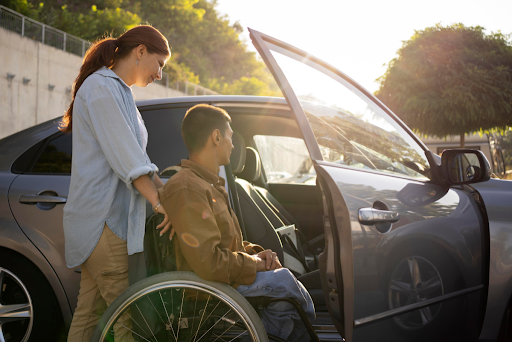Learning to Live With a Disability After a Car Accident
By PAGE Editor
Most people don’t expect to have a disability, so when it happens suddenly, there’s a mix of emotions such as fear, sadness, and frustration.
You might wonder if you’ll ever be happy again or how you’ll manage day-to-day life, especially if you’re still feeling sore after a car accident.
But millions of people have faced similar challenges and found ways to not just survive but thrive. You can too. It starts with accepting where you are and making adjustments that allow you to regain control over your life.
In this article, we’ll provide you with a roadmap for coming to terms with your new reality and learning to live with your disability.
Coming to Terms With Your New Reality
Before moving forward, you need time to grieve. Losing the life you knew is painful, and it’s okay to feel that pain. You might go through a range of emotions including anger, sadness, even denial. That’s normal. Suppressing those feelings won’t help, so let yourself process everything in your own time.
It’s also important to be honest with yourself and those around you. You don’t have to pretend everything is fine when it isn’t. Letting people know how you really feel helps them support you in the right way.
Bad days will happen, and that’s okay. You don’t have to be strong all the time. What matters is taking small steps toward accepting your new reality and figuring out how to move forward.
It’s also important to focus on what you can do. Your disability might change how you do things, but it doesn’t mean you have to stop doing everything you love. Whether it’s finding new hobbies, using adaptive equipment, or learning new ways to stay independent, there are always options.
Finding Ways to Make Life Easier
Living with a disability doesn’t mean you have to struggle more than necessary. There are tools, strategies, and support systems designed to help. The key is to be open to them.
You are the best person to speak up for your needs. Whether it’s at work, in school, or at the doctor’s office, don’t be afraid to ask questions, demand clarity, and push for what will make your life easier. The more you know about your rights and available resources, the more empowered you’ll feel.
Furthermore, you should teach yourself to use your adaptive devices without shame or embarrassment. Wheelchairs, prosthetics, hearing aids, and other assistive devices exist for a reason, and that is to help you live more independently. There’s no shame in using them. If a tool makes your life better, use it.
Asking Questions About Your Treatment Plan
Even though your disability is permanent, medical care doesn’t stop. You might need ongoing therapy, medications, or medical treatments. It’s important to ask questions and fully understand your treatment plan. Make sure your doctors and therapists are on the same page so you get the best care possible.
Finding Joy in New Ways
Your life can’t just be about recovery and medical care. You also need things that make you happy. Whether it’s art, music, sports, or something entirely new, finding activities that bring you joy helps you move forward.
Exploring new hobbies or adapting old ones can make a huge difference in how you feel about life.
Seeking Fair Compensation
If your accident was caused by someone else’s negligence, you might be entitled to financial compensation. Medical bills, lost wages, and the cost of long-term care can be overwhelming.
Filing a claim can help secure the financial support you need. However, dealing with insurance companies isn’t easy.
Getting legal help can make the process smoother so you can focus on healing instead of legal battles.
HOW DO YOU FEEL ABOUT FASHION?
COMMENT OR TAKE OUR PAGE READER SURVEY
Featured








This article by Kirill Yurovskiy explores the latest innovations in haircare wearables covering their applications, benefits, and future potential.